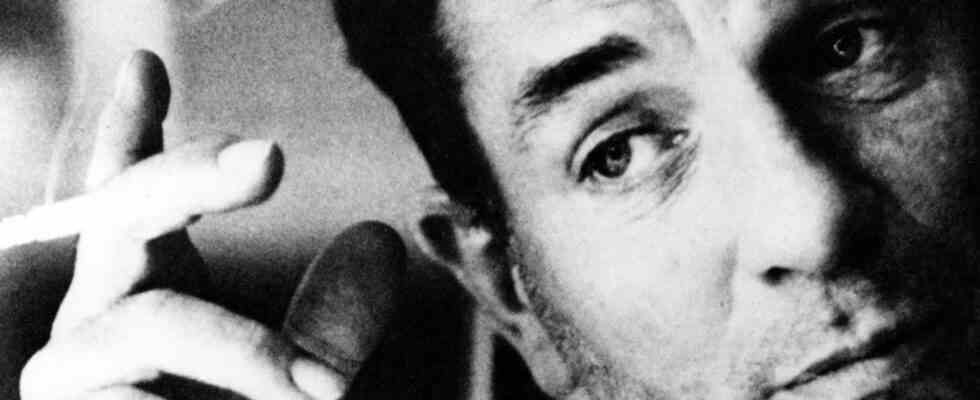Jack Kerouac is one of the most important representatives of 20th-century American literature. With his novel “On the Road” (Unterwegs) he became famous overnight, his book became the bible of a generation and he was proclaimed “King of the Beatniks”. Kerouac inspired millions with his work and his way of life – but he himself was to die from his dream.
It was a criticism in The Times that sent Kerouac into the spotlight overnight. The book, it said, was as significant to Kerouac’s generation as Hemingway’s The Sun Also Rises (also known as Fiesta) was to his. In a TV interview at the time, he was asked how long it took him to write “On the Road”. Kerouac, almost shyly, murmured, “Three weeks.” He said he typed the book onto a roll of telegraph paper in one go. The moderator joked, the audience cheered.
Kerouac fascinated and provoked in equal measure. However, the fact that the book was not the result of a whim, but the result of years of hard work, was not mentioned in the interview. Kerouac was stylized as a drifter with a talent for writing, although it was no coincidence that he became a writer.
chronicler of a generation
Born Jean-Louis Lebris de Kérouac into a dreary world where brawn counted for more than intellect, and where surrounded by the factories of a small Massachusetts town and surrounded by the factories of a small Massachusetts town, one was taunted about wanting to write for a living , he did everything he could early on to do just that. The delicate boy became a footballer, an excellent footballer, got a scholarship, made it out of poverty to the renowned Columbia University in New York.
There, in the early 1940s, Kerouac met William S. Burroughs (“Naked Lunch”) and Allen Ginsberg (“Howl”). Together they formed the nucleus of the Beat generation. They read, wrote and discussed, laying the foundation for their later careers. The Beatniks, they are considered the first pop writers. At that time, however, they were nobody in the literary world and that was to remain the case for many years.
In 1950, Kerouac debuted The Town and the City, but it was not a breakthrough novel. A year later he wrote “On The Road”. There were refusals from the publishers. Kerouac continued to write, tirelessly. Funded himself with hard, low-paying jobs, and wrote and wrote and wrote. In 1957 “On The Road” was finally printed. The release would be the pinnacle of his career. But with fame came the downfall.”
Jack Kerouac, rebel against his will
Because although the novel became a bestseller, the elite literary scene did not take him seriously as a writer. He was mocked and panned by the critics. Truman Capote once said, “That’s not writing, that’s typing.” This new, restless and breathless way of writing, inspired by the beat of jazz, was dismissed as amateurish and dismissed as art.
A stamp was put on Kerouac early on that never really fitted. He should be a rebel, an outlaw. In fact, however, he was largely conservative, deeply Catholic, and disciplined in his actions. During his lifetime, he was never to receive the recognition he was looking for. Over the years he withdrew more and more from the world, drank and drank and drank, living the secluded life of a hermit.
He is said to have once said, “I’m a Catholic, so I can’t commit suicide. But I plan to die drunk.” A goal that he actually pursued with consistency. He passed away in 1969.

